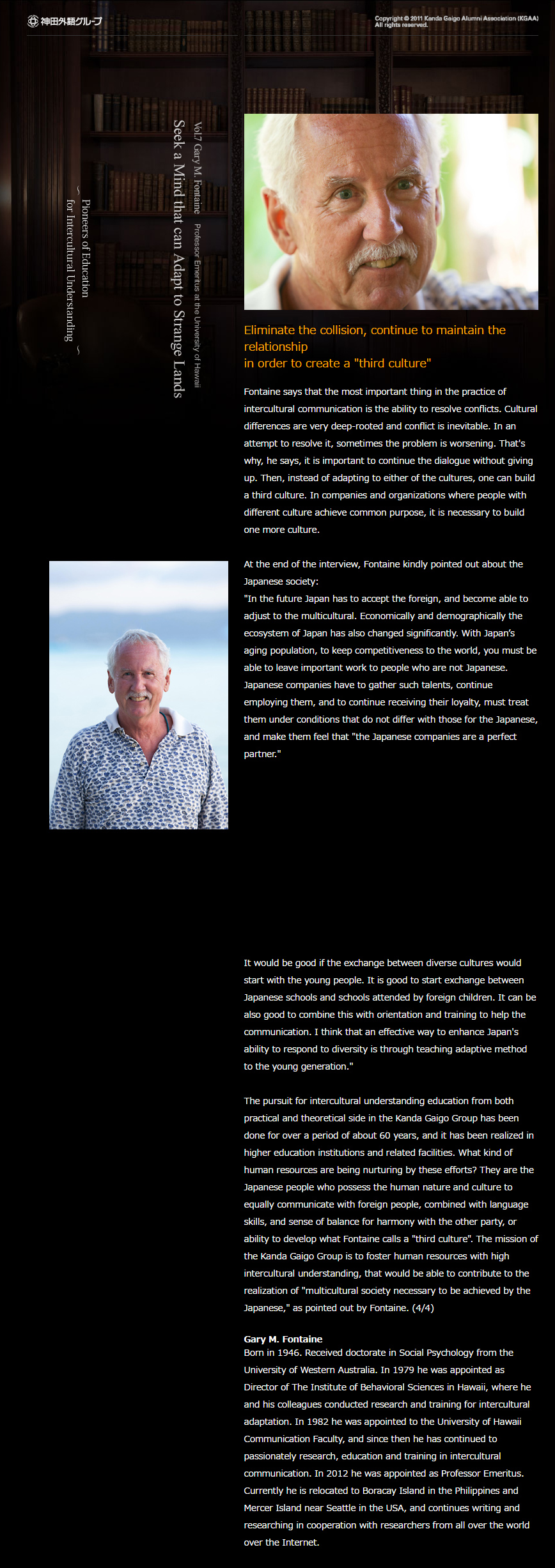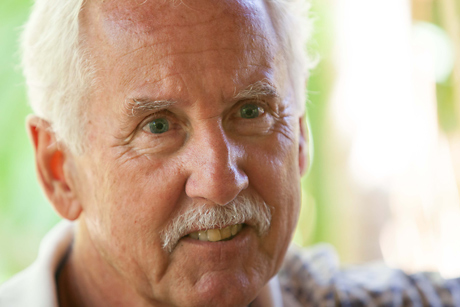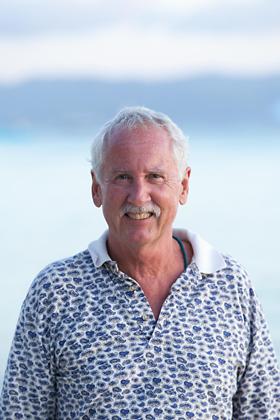

Copyright © 2011 Kanda Gaigo Alumni Association(KGAA). All rights reserved.

Fontaine says that the most important thing in the practice of intercultural communication is the ability to resolve conflicts. Cultural differences are very deep-rooted and conflict is inevitable. In an attempt to resolve it, sometimes the problem is worsening. That's why, he says, it is important to continue the dialogue without giving up. Then, instead of adapting to either of the cultures, one can build a third culture. In companies and organizations where people with different culture achieve common purpose, it is necessary to build one more culture.

At the end of the interview, Fontaine kindly pointed out about the Japanese society:
"In the future Japan has to accept the foreign, and become able to adjust to the multicultural. Economically and demographically the ecosystem of Japan has also changed significantly. With Japan’s aging population, to keep competitiveness to the world, you must be able to leave important work to people who are not Japanese. Japanese companies have to gather such talents, continue employing them, and to continue receiving their loyalty, must treat them under conditions that do not differ with those for the Japanese, and make them feel that "the Japanese companies are a perfect partner."
It would be good if the exchange between diverse cultures would start with the young people. It is good to start exchange between Japanese schools and schools attended by foreign children. It can be also good to combine this with orientation and training to help the communication. I think that an effective way to enhance Japan's ability to respond to diversity is through teaching adaptive method to the young generation."
The pursuit for intercultural understanding education from both practical and theoretical side in the Kanda Gaigo Group has been done for over a period of about 60 years, and it has been realized in higher education institutions and related facilities. What kind of human resources are being nurturing by these efforts? They are the Japanese people who possess the human nature and culture to equally communicate with foreign people, combined with language skills, and sense of balance for harmony with the other party, or ability to develop what Fontaine calls a "third culture". The mission of the Kanda Gaigo Group is to foster human resources with high intercultural understanding, that would be able to contribute to the realization of "multicultural society necessary to be achieved by the Japanese," as pointed out by Fontaine. (4/4)
Gary M. Fontaine
Born in 1946. Received doctorate in Social Psychology from the University of Western Australia. In 1979 he was appointed as Director of The Institute of Behavioral Sciences in Hawaii, where he and his colleagues conducted research and training for intercultural adaptation. In 1982 he was appointed to the University of Hawaii Communication Faculty, and since then he has continued to passionately research, education and training in intercultural communication. In 2012 he was appointed as Professor Emeritus. Currently he is relocated to Boracay Island in the Philippines and Mercer Island near Seattle in the USA, and continues writing and researching in cooperation with researchers from all over the world over the Internet.